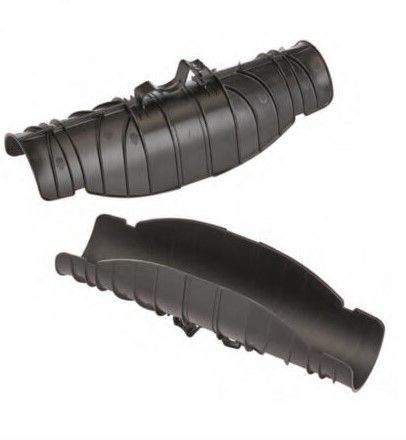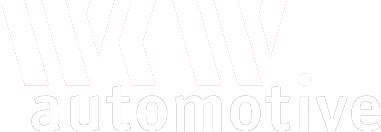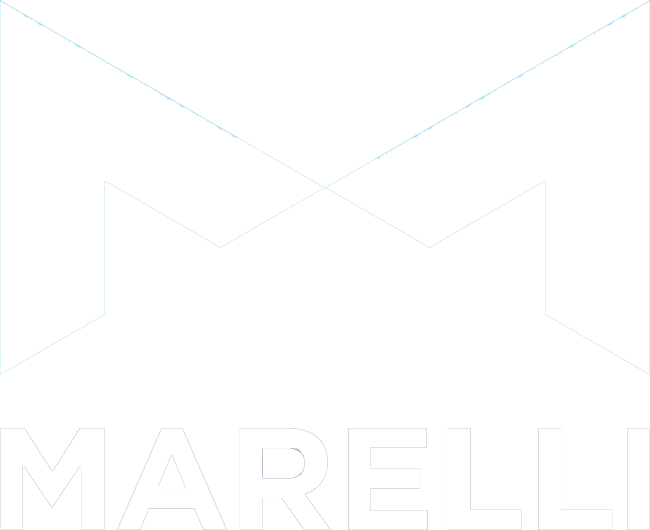Kubota Completes Large Supplier Transition to Koller Craft
In 2022, Kubota was having issues with a supplier producing large, durable, lightweight plastic components for their tractors. They had invested in a large number of tools with this supplier, yet the supplier was having trouble meeting Kubota’s needs for these products and was unable to keep up with production.
Kubota was faced with moving production to a new supplier and selected Koller Craft’s South facility in Gadsden, AL. This required the shipment of over 20 tools, the onboarding of a new supplier into the existing ecosystem that Kubota manages, and starting up a new round of production which requires trials with the new supplier team and quality testing to ensure the parts consistently meet design standards.
The Koller Craft South team worked quickly to onboard with Kubota. Our tooling and production engineers brought in the 20+ tools and immediately began trials to test the capabilities. Our quality team inspected initial parts and established our standards of quality for the team, and built out detailed work instructions (DWI) for each part.
Meanwhile, our customer service team established strong channels for communication and set up Kubota for EDI to allow for a smooth ordering process. Our shipping team established processes customized for Kubota to support consistent, on time delivery.
Ultimately, the Koller Craft team went from tool transfer to the first shipment in 4 weeks, receiving high quality ratings from Kubota and 99%+ on time delivery.
By handling a large tool transfer and swift onboarding, Koller Craft ensured little disruption to Kubota’s overall operations, and today provides even more consistency of quality and service than their previous supplier.
If your company is considering a significant supplier change, the Koller Craft team welcomes the opportunity to partner together and ensure a smooth transition along the way.
Gratnells Localizes Production with Koller Craft to Serve US Market
Gratnells is a UK-based company focused on configurable storage systems for educational environments. A global leader in their industry, they offer schools from pre-K through college exceptionally durable, configurable systems to be used in classrooms, labs, and art studios for years at a time.
As furniture manufacturing costs have increased substantially in recent years, Gratnells has faced pressure to find a way to continue providing their high-quality products to educational environments for an affordable price in the US market.
Gratnells found that bringing their product manufacturing to the US would allow them to save money while achieving the level of quality they required for their US customers. Koller Craft began working with Gratnells to showcase our efficient processes, stringent commitment to quality, and flexibility in meeting their needs across a myriad of their products.
Our customer service, engineering, and quality teams facilitated a smooth process to start up production, and within a matter of months had product shipping out of our facility on a consistent basis.
Gratnells was able to save on ocean freight costs and reduce lead times by partnering with Koller Craft to provide production for the US market. As an additional benefit, Koller Craft worked to provide an “Ultra Clear” tray to fulfill the request of one of their customers through material additives and special processing. This allowed for better visibility of its contents for users in the classroom.
By choosing Koller Craft, they continue to offer their premium products at reasonable prices to schools and educational spaces, and aim to continue improving their products together.
Cabka Seeks Help From Local Companies After Devastating Flood
Cabka, a global company leading the reusable transport packaging industry, has its US manufacturing operations based in St. Louis, MO. In early 2023, a large flood brought this plant’s production to a halt as its machines were submerged in four feet of water.
Though they were unable to run their machines, their molds were fortunately unaffected and could be run in other manufacturing facilities. Cabka needed to find a plant with sufficient capacity, flexibility to receive and work with new molds quickly, run their products with as much up time as possible, and provide little to no disruption in Cabka’s commitments to delivering to its customers.
Cabka turned to Koller Craft, a fellow St. Louis injection molding manufacturer, for help.
Initially, with Koller Craft’s busy schedule to maintain, the ability to help didn’t seem possible. The Koller team accepted the challenge, however, to “make it happen”. Koller Craft agreed to take on two molds for Cabka, though it took some creativity in achieving what Cabka needed.
To free up two presses to run 24/7 five days per week, Koller Craft adjusted scheduling, was able to make some timely mold changes, and even enlisted the help of Koller Enterprises sister company, SLP Lighting in Sullivan, MO, for one of the molds to utilize open capacity they had for a brief period ahead of a few upcoming large orders.
Ultimately Koller Craft’s Fenton plant was able to make room for both molds at two dedicated presses until Cabka had their St. Louis facility up and running again.
Koller Craft’s flexibility and “can-do” attitude allowed Cabka to continue serving its customers with minimized disruption despite an unfortunate flood that could have set their timelines back for multiple months.
The Koller team is happy they were able to open up capacity to help out a fellow company in need.
True Partners With Koller Craft On New Product Development
True Manufacturing is a trusted brand in the commercial refrigeration industry and a long-term customer of Koller Craft.
True was developing a new line of commercial ice makers, and the ice bins being designed for the product line required several injection molded parts. In sourcing these bins, they wanted them to be 100% produced in the US – from the injection molds to the manufacturing and final part assembly.
This project required a partner that could work through the entire process with True, including engineering & design, sourcing, manufacturing, & assembly, all with an eye toward the overall budget. True selected Koller Craft as the trusted partner for their new product development.
Koller Craft was able to source molds with a cost effective domestic partner. Working with True’s engineers, Koller Craft was able to suggest changes to the part designs that would better facilitate the manufacture of the injection molds. Moldflow® analysis software was utilized to optimize the gating system of the parts. Koller Craft also designed and built in-house the End of Arm Tooling components for robotic removal of the parts from the molds.
Once the parts were designed and manufactured, two parts of the ice bins also required a secondary assembly process utilizing ultrasonic welding. Fortunately, Koller Craft offers this capability. The first part, an ice scoop, required magnets to be incorporated into the part, and Koller Craft provided the proper energy director design for the magnet covers. The second part required threaded brass inserts to be installed in the molded part. In both cases, Koller Craft designed the holding fixtures for the part in SolidWorks® and used an in-house 3D printer to build them.
True Manufacturing was able to meet their objective of fully US-molded parts within budget, and the new product line ultimately developed three different sizes of ice bins for the commercial market.
By partnering with Koller Craft, they leveraged one supplier to manage tool development, manufacturing, and assembly for the injection molded components of the ice bins. True also received significant thought-partnership from Koller Craft during the design phase to ensure successful production from mold creation to the finished product.
For more information about Koller Craft’s breadth of expertise across engineering, mold sourcing, and available secondary operations, contact us today to speak with a member of our team.
Marelli and WKW Flow Over-Molding Work to Koller Craft
In the development of parts for new vehicles, two automotive suppliers required the use of the over-molding technique on their components. The teams at Marelli, creating a cup holder component for the Mazda CX-50, and WKW, creating roof rail components for the Honda Pilot, are not familiar with utilizing the over-molding process.
The programs were presented to Koller Craft so that we could work with their engineering teams to determine the best practice to produce the products for these automotive programs.
Initial production trials were unsuccessful. Parts were unable to maintain their dimensions, resulting in warped areas or insignificant flow that failed to fill the part completely. Koller Craft’s engineers began DOE’s (Design of Experiments) to isolate the root cause during the molding process.
In both cases, the materials initially outlined in the part criteria were insufficient in producing the part to specification. Additionally, certain aspects of the molds and tooling were preventing uniform production and deeming the parts cosmetically unacceptable.
Koller Craft’s team researched and tested multiple resins to determine suitable options. With Marelli, we identified a substrate and over-mold resin that maintained the dimension of the cup holder and prevented warp. For WKW, we partnered with our resin supplier to determine a better flowing Hytrel® resin to fill the roof rack component completely.
With approvals from Marelli and WKW, our engineers also reconfigured mold cooling channels and injection gates, and made multiple tool changes for a more robust and repeatable molding process that allowed for smooth production of parts accepted by Mazda and Honda.
Kasai Roots Out Tooling Issues With Koller Craft
Kasai had new tooling built for a program for the Nissan Altima. Given capacity, Kasai contracted with Koller Craft to produce the part.
Koller Craft began testing the mold and production process to ensure a successful launch of production by the scheduled start date. This testing allows for assessment of the tooling itself to ensure viability through mass production – however, in this case testing was unsuccessful.
During the pre-build process, there was a consistent gap issue occurring in each part. Given the persistence of the issue, Kasai’s engineering team believed the only fix would be new tooling, incurring an excessive, unnecessary cost to build a new injection mold.
The Koller Craft team believed a more cost effective solution would be achievable, and set out on a root cause analysis to determine what was causing the gap issue in the initial tool.
As the Koller Craft team examined the tooling, we determined the cooling process was the source of the problem repeatedly in the same area. We updated this process so after the robot removed the part from the tool, we used a piston to hold the at-risk area in position while using a cooling blow-off valve to cool the part so it would remain in spec.
This process addition was highly repeatable and used throughout mass production of the part. Nissan accepted all parts resulting from this updated process, and Kasai was able to avoid sourcing new tooling – instead utilizing a solution that cost less than $700, less than 1% of what a new tool would cost.
Koller Craft’s detailed approach to problem solving with Kasai is an example of the strengths and expertise of our engineering and maintenance teams to solve issues at their core, saving on overall time and cost of getting to production.
Despite challenges, new proper fitting pipe shields hit market with help hit market with help of Koller Craft
Eaton Finds The Right Fit With Koller Craft

Eaton Corporation came to Koller Craft in early 2018 looking to create its own pipe shield brand. The multinational power management company wanted a new pipe shield that had improved mounting capabilities. By creating its own pipe shield, Eaton could offer a better product, have more control, and improve its bottom line.
During the development process, the pipe shield would have to achieve Underwriters’ Laboratories (UL) certification. The UL listed seal means that the product has been tested by UL to nationally recognized safety and sustainability standards. Passing this certification is no easy task.
On the UL application, Eaton stated that the new pipe shield would be created using virgin material, a challenging proposition when many plastic injection molders utilize regrind material in their products. With regrind material, extra plastic parts are grinded and combined with virgin material. If Koller Craft could only use virgin material, Eaton’s costs would go up 10-15%.
Another challenge occurred during the trial process at Koller Craft. There was an issue with the snap on the pipe shield. During the cooling process, the snap would warp. This meant Koller Craft would have to find a new, effective way to cool the shield.
Koller Craft had special cooling fixtures built in-house, and additional testing was performed to ensure the mounting features were correct. Once the shields came out of the manufacturing tool, they were snapped on to the cooling bar and held their shape around the cooling fixture.
With the pipe shield already approved by the UL with all virgin material, Eaton had to figure out how to get it reapproved by using regrind materials to keep costs down. To solve this issue, Koller Craft ran different samples with various levels of regrind. The testing was performed to see what percentage of regrind could be used and still pass UL certification
Eaton and Koller Craft achieve UL approval at 10% regrind, helping Eaton keep its costs down on materials. Additionally, Koller Craft could use some of the regrind from the pipe shields for different products it creates for other customers.
Koller Craft can now manufacture sets of pipe shields in less than two weeks. Previously Eaton was required to wait six weeks before getting the parts from its last supplier.
Working with Koller Craft helped Eaton receive a higher-quality product in a faster turnaround time. This has given Eaton more control of the product and improved their bottom line. Working with Koller Craft on this project was truly the perfect fit for Eaton.
Working with Koller Craft helped Eaton receive a higher-quality product in a faster turnaround time.
Koller Craft provides molding, metalizing work for automotive lights
NAL, Stanley Electric See The Light With Benefits of Single-Sourcing

Although large companies can produce and metalize their own products, they often run into internal capacity issues. Even companies like North American Lighting (NAL) and Stanley Electric only have so much space for new equipment and tools. Thus, at some point, they must outsource to another manufacturer. Ideally, this could be a company that can be a single-source shop and can both mold and metalize.
Often, there can be quality and liability issues when metalizing another manufacturer's parts. The quality of the metalizing depends on the quality of the molded part. With any blemish or contamination, parts will not metalize and will have to be scrapped. When using multiple manufacturers, it is difficult to determine where the issue occurred.
In addition to quality control issues, manufactures must also follow the Production Part Approval Process (PPAP) for any automotive products.
NAL and Stanley Electric have turned to Koller Craft to be a single-source to assure quality control for their molding and metalizing needs. In a relationship that has lasted nearly 40 years combined, Koller Craft has manufactured headlight reflectors - and other components - for NAL and Stanley Electric's clients, Honda and Nissan.
In order to be cost-effective, while still producing a high-quality part, Koller Craft utilizes Sputter metalizing equipment to metalize the headlight components for NAL and Stanley Electric. In a process that only takes approximately five minutes to complete, Koller Craft applies sprayed or in-chamber topcoats to provide a long-lasting reflective surface. Koller Craft uses this technology to apply aluminum, brass, copper and silver coatings on these parts.
Through this process, Koller Craft receives PPAP approval on all lights manufactured and metalized for NAL and Stanley Electric. Koller Craft also meets all quality requirements regarding the dimensions, cosmetics and the aesthetics of the parts.
Koller Craft eliminated all concerns regarding part quality through its process. Single-sourcing has been an ideal option for NAL and Stanley Electric as Koller Craft is fully responsible for quality control of the parts. By understanding the intricacies involved in metalizing a product molded in-house, Koller Craft can produce brilliant reflective surfaces that are used in many automotive headlamp and tail lamp assemblies, such as the Acura TLX and Nissan Murano.
Working with a single-sourcing partner has helped NAL and Stanley Electric save time, shipping costs and money lost due to quality issues.
Converting to plastic can lead to cost savings and improve a company's bottom line.
To learn more about how metalizing is an effective metal alternative for automotive or non-automotive parts, contact Koller Craft today.
Koller Craft eliminated all concerns regarding part quality through its process.
Koller Craft Top Customers
Join our growing list of satisfied clients, including:

Slide title
Write your caption hereButton
Slide title
Write your caption hereButton
Slide title
Write your caption hereButton
Slide title
Write your caption hereButton

Slide title
Write your caption hereButton
Slide title
Write your caption hereButton
Slide title
Write your caption hereButton
Slide title
Write your caption hereButton

Slide title
Write your caption hereButton
Slide title
Write your caption hereButton
Slide title
Write your caption hereButton
Slide title
Write your caption hereButton
*The Watlow logo is a registered trademark of Watlow Electric Manufacturing Company and is used by Koller Craft, LLC with permission.

